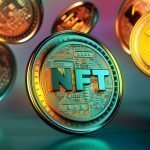A digital economic zone backed by the Catawba Indian Nation in Rockhill, South Carolina, has passed a set of regulations aimed at creating “legal clarity” for digital assets.
The framework defines digital assets – from cryptocurrencies to non-fungible tokens (NFT) – as intangible property or personal property without physical existence, according to a Wednesday announcement.
The Catawba Digital Economic Zone (CDEZ), set up in February 2022, is a sovereign regulatory zone established and backed by the Catawba Nation, the announcement said. The new regulations were adopted on July 6, 2022 by the CDEZ zone authority, which operates as an arm of the Catawba Nation government, according to its website. The economic zone plans to allow digital asset companies to remotely incorporate under its laws.
“[The rules] are in effect now but we have only just begun to market the zone to prospective companies. This policy will be the foundation for a comprehensive and clear regulatory framework for crypto and Web3 companies,” a CDEZ spokesperson said in an email to CoinDesk.
The Catawba Indian Nation is a 700-acre reservation with just over 3,000 citizens, and is the only federally recognized native tribe in South Carolina. The Catawba government did not respond to a request for comment on the CDEZ legislation by press time.
The CDEZ zone authority has separate assets, liabilities and independent decision making capacity from the Catawba government, but it is ultimately accountable to the Nation’s elected leadership and legislative arms, a spokesperson for the zone said in an emailed statement.
“The zone is run by a for-profit management company that is majority owned by the Catawba Indian Nation,” the statement said, adding, “Many of the blockchain-related regulations, such as the digital assets regulation, were based on the years of work of the Wyoming policymakers, though we improved it when there was a clear need.”
The new regulatory framework, reviewed by CoinDesk, says a digital asset could be a “Digital Consumer Asset” bought primarily for consumptive purposes; a “Virtual Currency” which can be used as a unit of account, means of exchange or a store of value that is not legal tender in the U.S.; or a “Digital Security” which cannot be either a virtual currency or digital consumer asset.
It also defines NFTs as indivisible assets that may be classified as securities depending on the nature of their use. Fractionalized NFTs that split up the ownership of one NFT between multiple people could fall outside the scope of the framework.
“NFTs, by their very nature as non-fungible assets, are indivisible and unique. That does not prohibit firms from denoting economic interest in the NFT with fungible tokens. However, the definition of those fungible tokens will be defined differently from the Code itself,” the CDEZ spokesperson said.
According to the announcement, establishing legal definitions of digital assets is the first step toward setting up more sophisticated regulatory frameworks governing the likes of the asset-backed stablecoins and member-owned decentralized autonomous organizations (DAO) that underpin decentralized finance.
“Now that we have clear digital asset definitions established, a milestone that many governments have still failed to achieve, we can move forward. The Zone can quickly pass thorough and comprehensive frameworks for the regulation of DAOs, stablecoins, and other facets of the Web3 space that are currently poorly defined in legal codes around the world,” Sam Trimnal, chairman of the zone authority, said in a press statement.
In early June, the CDEZ launched a public comment period for the development of regulations for DAOs.




